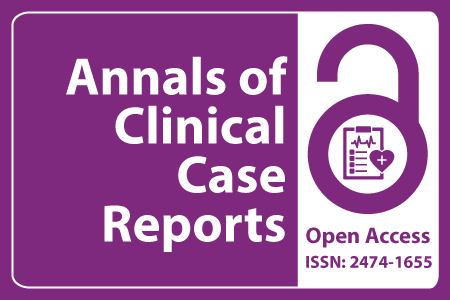
Journal Basic Info
- Impact Factor: 1.809**
- H-Index: 6
- ISSN: 2474-1655
- DOI: 10.25107/2474-1655
Major Scope
- Diabetology
- Nuclear Medicine
- Dermatology and Cosmetology
- Orthopedic Surgery
- Veterinary Sciences
- Renal Disease
- Chemotherapy
- Respiratory Medicine
Abstract
Citation: Ann Clin Case Rep. 2018;3(1):1514.DOI: 10.25107/2474-1655.1514
The Postural and Cognitive Disabilites of Chronic Perilymph Fistula (PLF) after Mild Head Trauma
Jeremy Hornibrook
Department of Otolaryngology-Head and Neck Surgery, Christchurch Hospital, New Zealand
University of Canterbury, Christchurch, New Zealand
University of Otago Christchurch School of Medicine, New Zealand
*Correspondance to: Jeremy Hornibrook
PDF Full Text Case Report | Open Access
Abstract:
Perilymph Fistula (PLF) is a leak of perilymph at the oval or round window. It was first recognized in the early days of stapedectomy surgery as causing balance problems before sealing of the prosthesis with natural tissue became routine. It then became apparent that head trauma and barotraumatic trauma from flying or diving could be a cause of PLF. Large institutional published case series and descriptions of “spontaneous” PLF with no trauma history led to skepticism and a bitter debate between “believers” and “non-believers”. The main criticisms were a lack of reliable symptoms and diagnostic tests and operative traps in distinguishing leaking perilymph from local anaesthetic. A close examination of the literature reveals a disparity of definitions and assumptions on symptoms, particularly vestibular. Acute PLF is diagnosis that will easily come to mind for a patient presenting with aural barotrauma from diving or flying, an airbag explosion, or a direct blow to the ear canal. But it may not be considered in a patient with subtle symptoms (particularly balance) after mild head trauma or whiplash that may have occurred months or years prior, where the symptoms have been blamed on traumatic brain injury. There is increasing evidence from animal and human studies that fixed peripheral vestibular damage can cause cognitive disabilities. A chronic PLF is a rare example of an unstable peripheral abnormality that can cause a demonstrable chronic unilateral postural instability and cognitive difficulties. These symptoms are likely due to chronic otolith organ dysfunction. The video component of this article documents these in a middle aged male after a mild head injury and their complete resolution following PLF repair.
Keywords:
Perilymph fistula; Trauma; Traumatic brain injury; Postural instability; Sideways stepping test; Cognitive disability; Tympanotomy
Cite the Article:
Hornibrook J. The Postural and Cognitive Disabilites of Chronic Perilymph Fistula (PLF) after Mild Head Trauma. Ann Clin Case Rep. 2018; 3: 1514.













